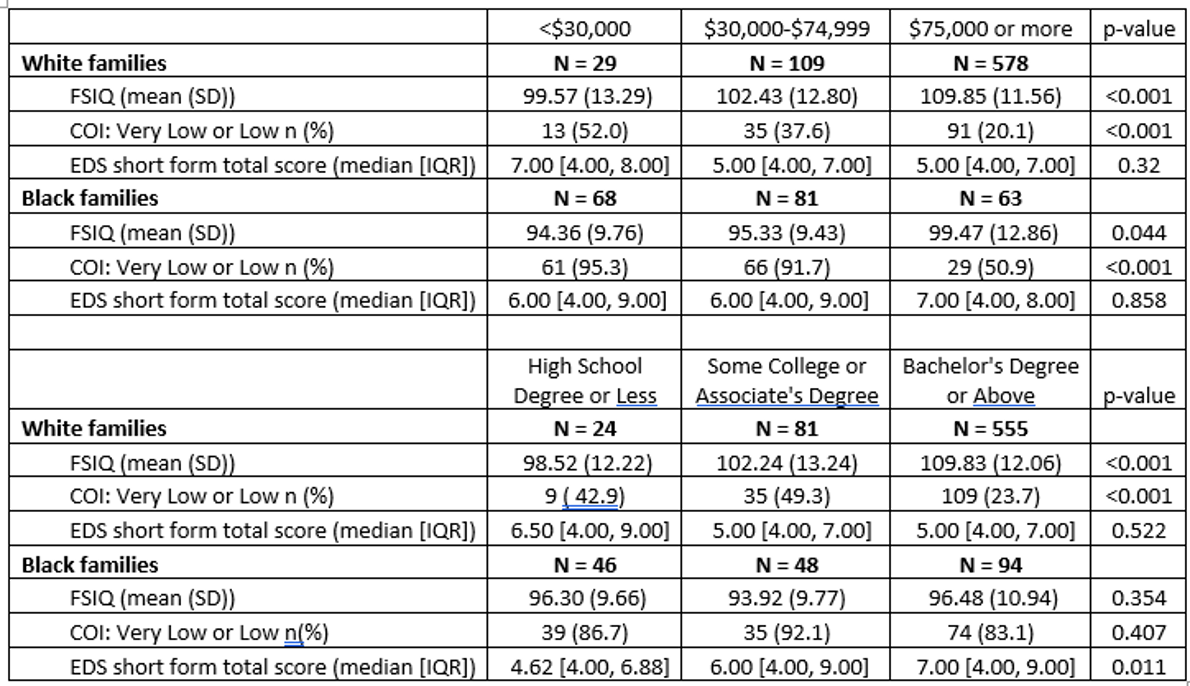Health Equity/Social Determinants of Health
Health Equity/Social Determinants of Health 6
662 - Perceived discrimination and neurocognitive development among black and white children: An analysis from ECHO cohorts
Publication Number: 662.317

Jennifer Porter, MD (she/her/hers)
Associate Professor
University of Louisville
Louisville, Kentucky, United States
Presenting Author(s)
Background: Child neurocognitive outcomes are affected by family socioeconomic status (SES) but less is known about the influences of discrimination.
Objective:
We hypothesize that Black children’s caregivers experience more daily discrimination than White caregivers, independent of their SES, which affects children’s neurocognitive development.
Design/Methods: We analyzed Environmental Influences on Child Health Outcomes (ECHO) cohort data, from children who were given Wechsler Preschool and Primary Scale of Intelligence/Weschler Intelligence Scale for Children between 3 and 8 years of age. The Everyday Discrimination Scale (EDS) was used to assess caregiver perceived discrimination, reversing scores, with higher scores indicating more discrimination. Harmonized full scale IQ (FSIQ) scores were compared separately for Black (n=261) and White (n=808) children across income and education categories, and neighborhood opportunity, as measured by the Child Opportunity Index (COI). COI scores were dichotomized due to lack of variability among Black children. Multivariable generalized linear mixed effect models assessed associations of income, education, and COI with EDS, and the association of EDS on IQ.
Results:
Table 1 describes the sample. FSIQ and COI were highly associated with household income (Table 2). In the highest income category, 51% of Black children lived in a lower opportunity area. No significant difference was found on EDS scores of caregivers of Black children across income. Among caregivers of Black children, EDS was significantly lower for those with a high school degree or less compared to those with at least a bachelor’s degree (Table 2). For caregivers of White children, significant interaction was found between income and education in association with EDS (Table 3). FSIQ was positively associated with income for both Black and White children, and with caregiver education among White children. EDS was not significantly associated with FSIQ for either Black or White children. COI was not independently associated with FSIQ in Black children.
Conclusion(s): Although EDS was associated with caregiver education, neither EDS nor COI appear to capture the cumulative association of racism with IQ for Black children. New measures of interpersonal and structural racism are needed to facilitate studies of protective factors which optimize neurocognitive development in Black children..png)

.png)
